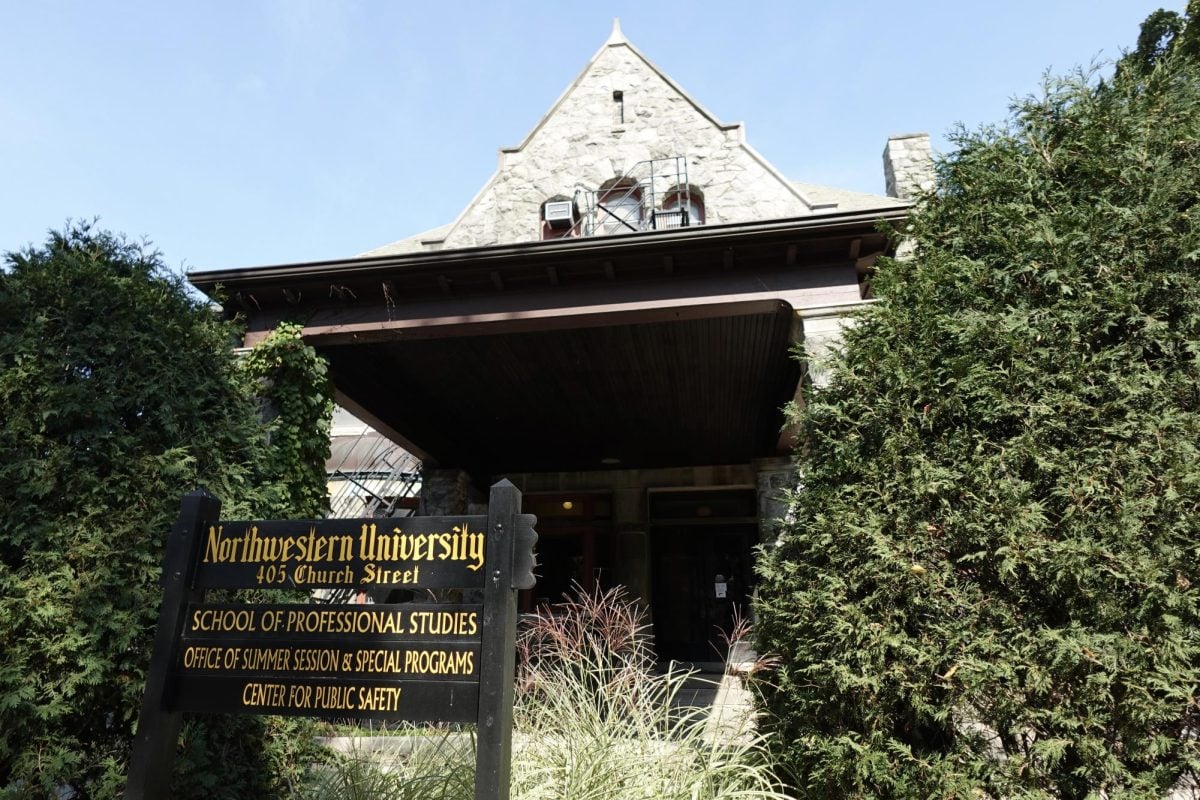Eighty-eight years is a long time for any department to operate without much buzz. However, this is the case for the Northwestern University Center for Public Safety.
NUCPS is a professional development school that trains public safety personnel in highway safety and leadership management. Tucked away at its 405 Church St. headquarters, the center is a global operation that offers certificate courses and training programs in everything from crash prevention to police motorcycle training.
“We have been in the Middle East, we’ve been in Asia, we’ve been in Africa, we’ve been in Europe,” NUCPS Director Michelle Camden said. “We’ve had the opportunity to go beyond not only nationwide, but internationally.”
NUCPS was established in 1936 as the NU Traffic Institute. Its name was changed in 2000 to reflect the center’s equal focus on traffic safety and police administrative training, Camden said.
Before founding the center, Franklin Kreml (Weinberg ‘29) lived as a student by day and cop by night. After transferring to NU from the University of Wisconsin, he joined the Evanston Police Department as a means of supporting himself.
During his time in the department, Kreml contributed what former NUCPS Director of Research Roy Lucke called a “selective enforcement” method, a city map of crashes that aimed to increase police patrols at those locations. His method helped Evanston reduce its automobile death rate from 27 per 100,000 in 1928 to 7 per 100,000 in 1933.
“All of a sudden, the Evanston PD is getting calls from police departments around the country saying, ‘Can you come teach us how you did what you did?’” Lucke said. “Kreml personally became very popular in going around the country and talking about how to reduce crashes, and it became known as the Evanston Method.”
Building on his success, Kreml turned to NU’s Sociology and Political Science departments for assistance in starting educational programs, which snowballed into a full-blown institution.
Lucke said that NUCPS has always been “a little binary,” mainly focusing on police administrative training and highway safety training. He said that overall, NUCPS aims to emphasize the role of police in modern society.
“You don’t have to pick up too many newspapers to find that there have been leadership failures in law enforcement agencies, and that is one of the focuses,” Lucke said.
In its history, NUCPS has adapted many times to world events. During World War II, Kreml paused his leadership when he joined as an army captain. When COVID-19 became a barrier for University operations, NUCPS struggled to continue programming. They would move headquarters and begin offering online opportunities for the first time, which broadened the center’s reach.
But NUCPS has also remained local by training Evanston police officers and officials such as Police Chief Schenita Stewart. Stewart said she took a 10-week course as a lieutenant and then a three-week executive management course prior to becoming a deputy chief.
“They were always forward-thinking and proactive with the best practices in law enforcement,” Stewart said. “Recently, the law enforcement has been through a lot of changes, but I appreciated that I’ve been able to send staff or supervisors to their training courses.”
Camden said that beyond holding credentials recognized by industry agencies, NUCPS holds a nationwide reputation in the industry.
Despite this prestige, its nearly 90-year-old roots and extensive programming, even Camden admitted that NUCPS is relatively unknown to undergraduates.
“I think (undergraduates) would probably be surprised to hear that we’ve been around for as long as we have,” Camden said. “There’s a lot of other parts of the University that don’t know that we’re here. We’re just one little unit in a mansion on the lake.”
Email: [email protected]
Related Stories:
— ‘Caltech embedded inside of Northwestern’: A look into Integrated Science Program
— How one Northwestern lab digs deep for climate change solutions






